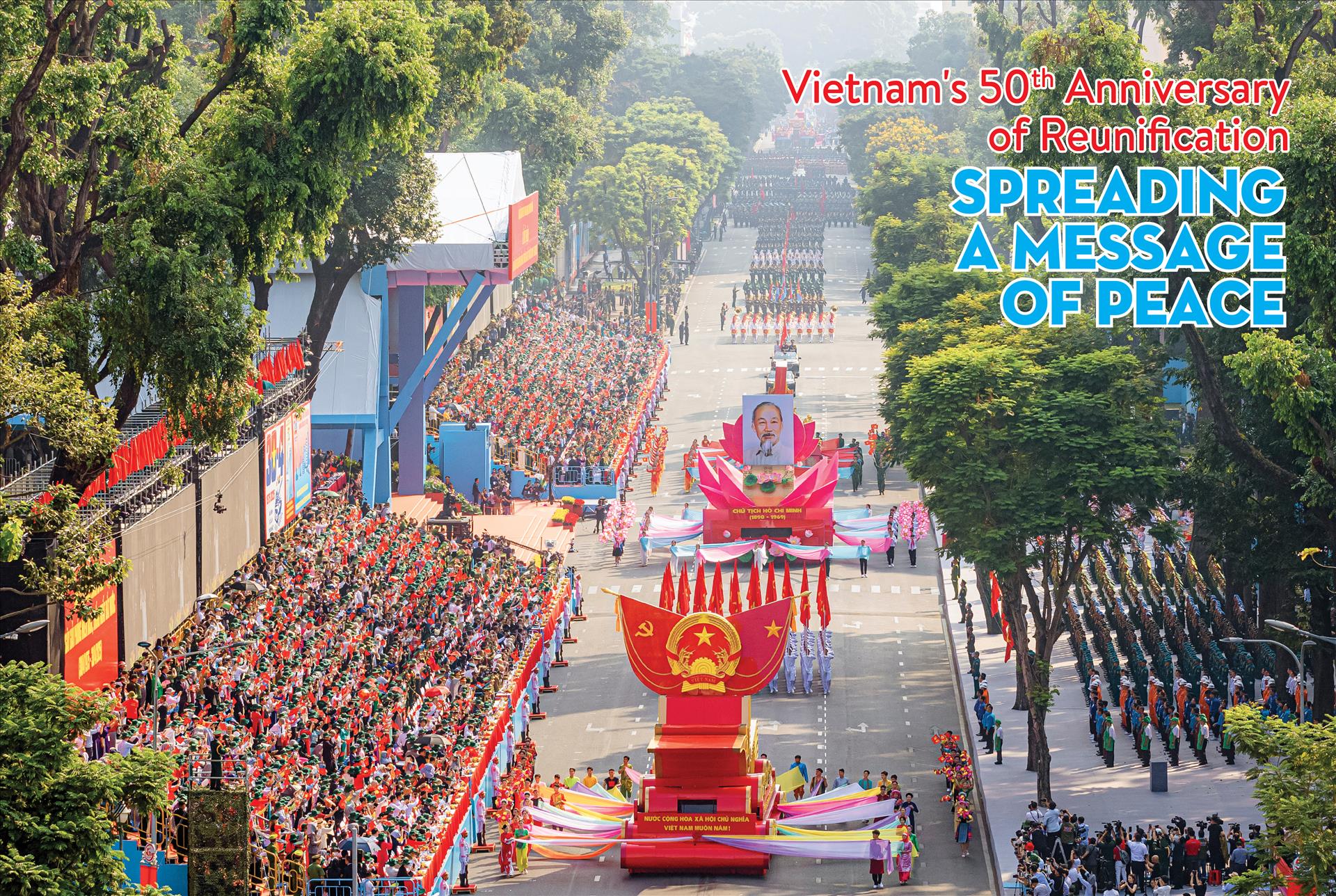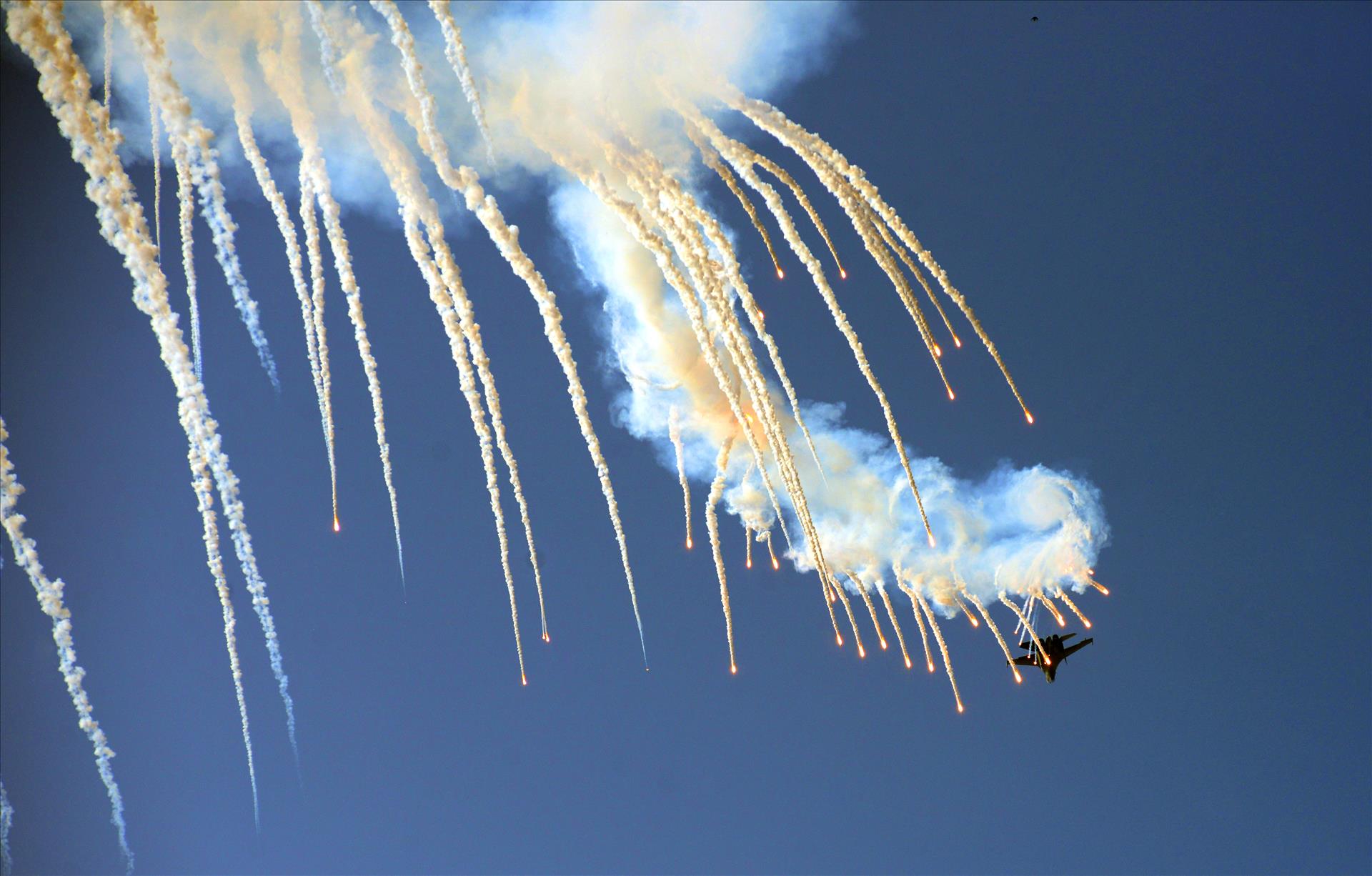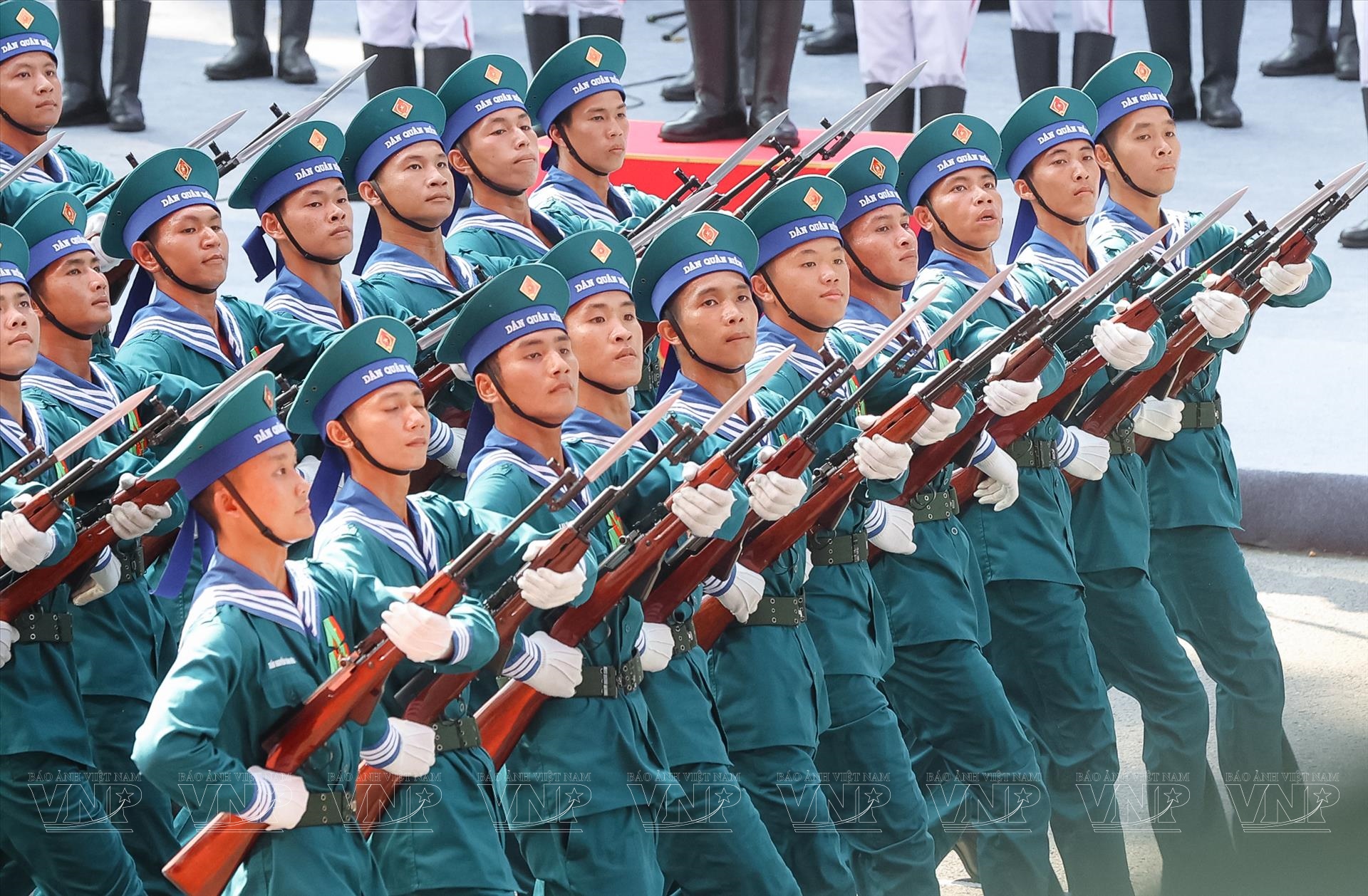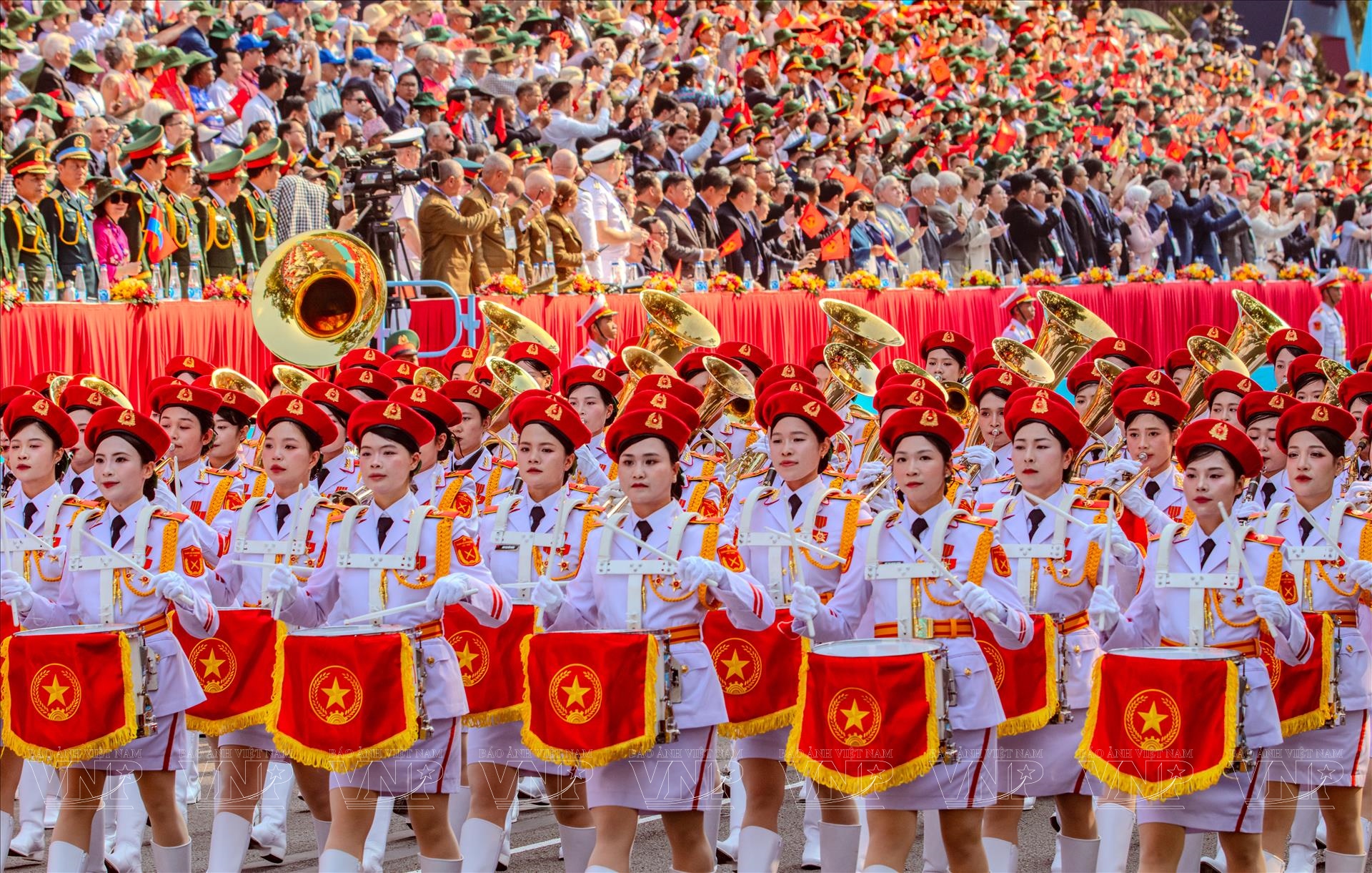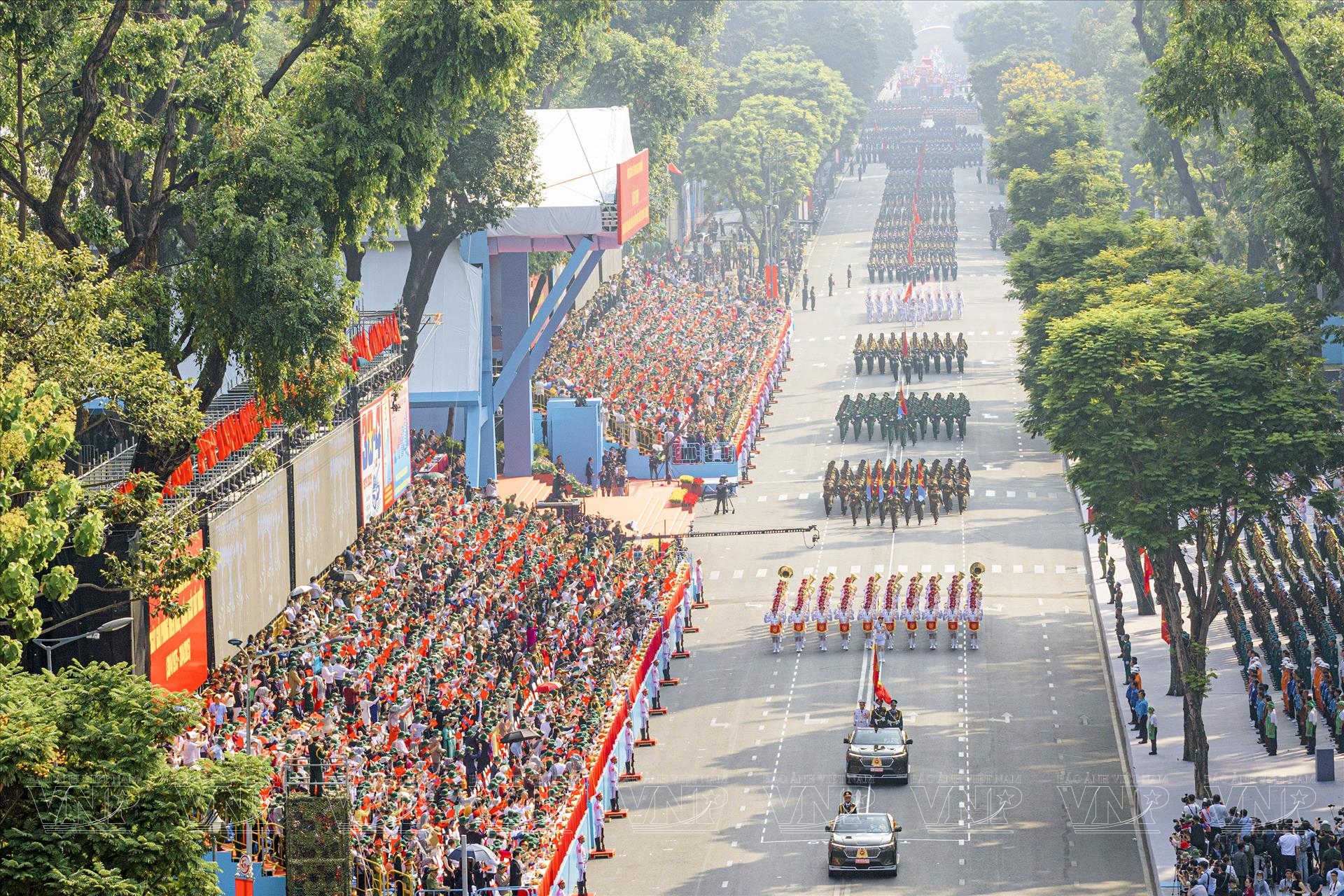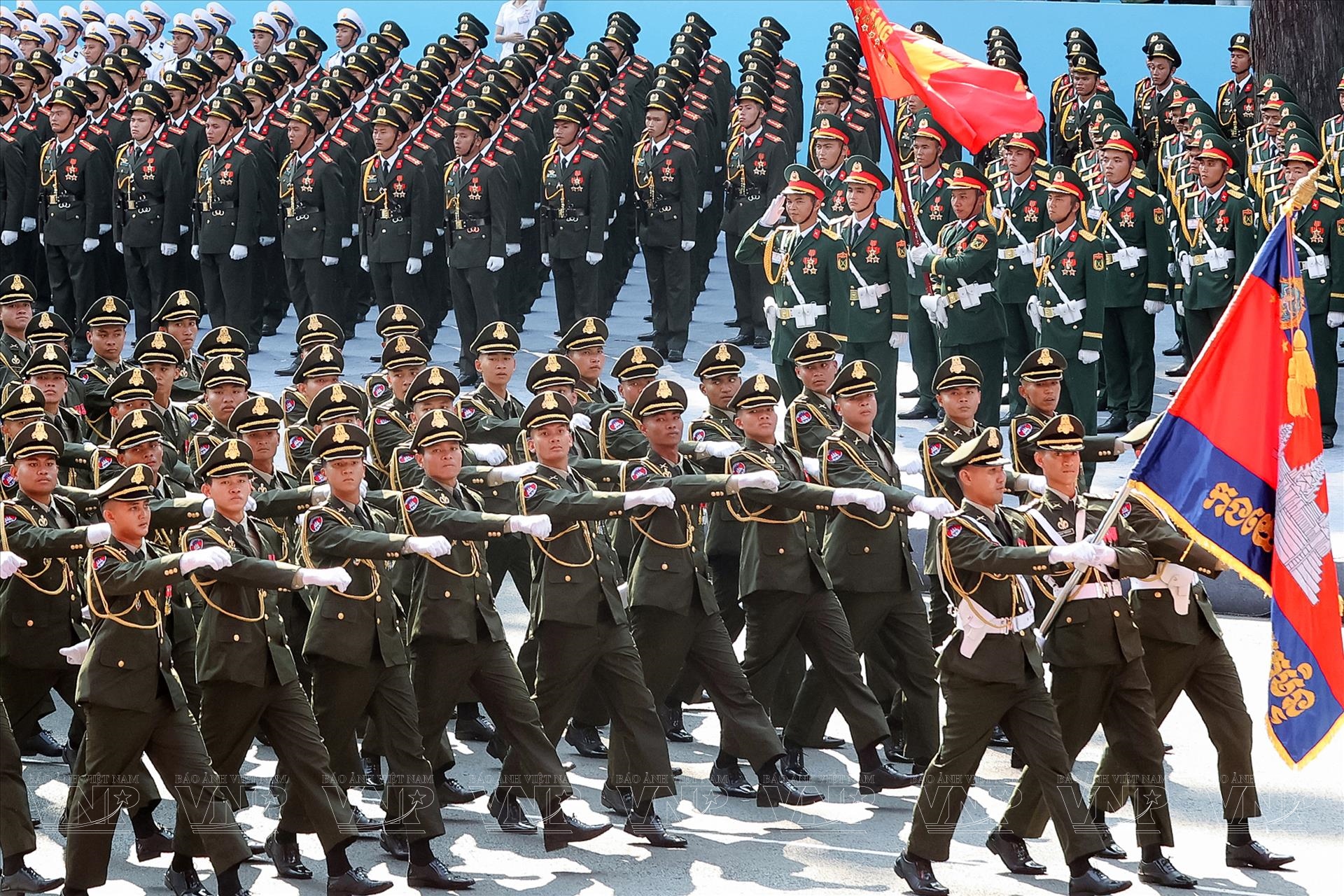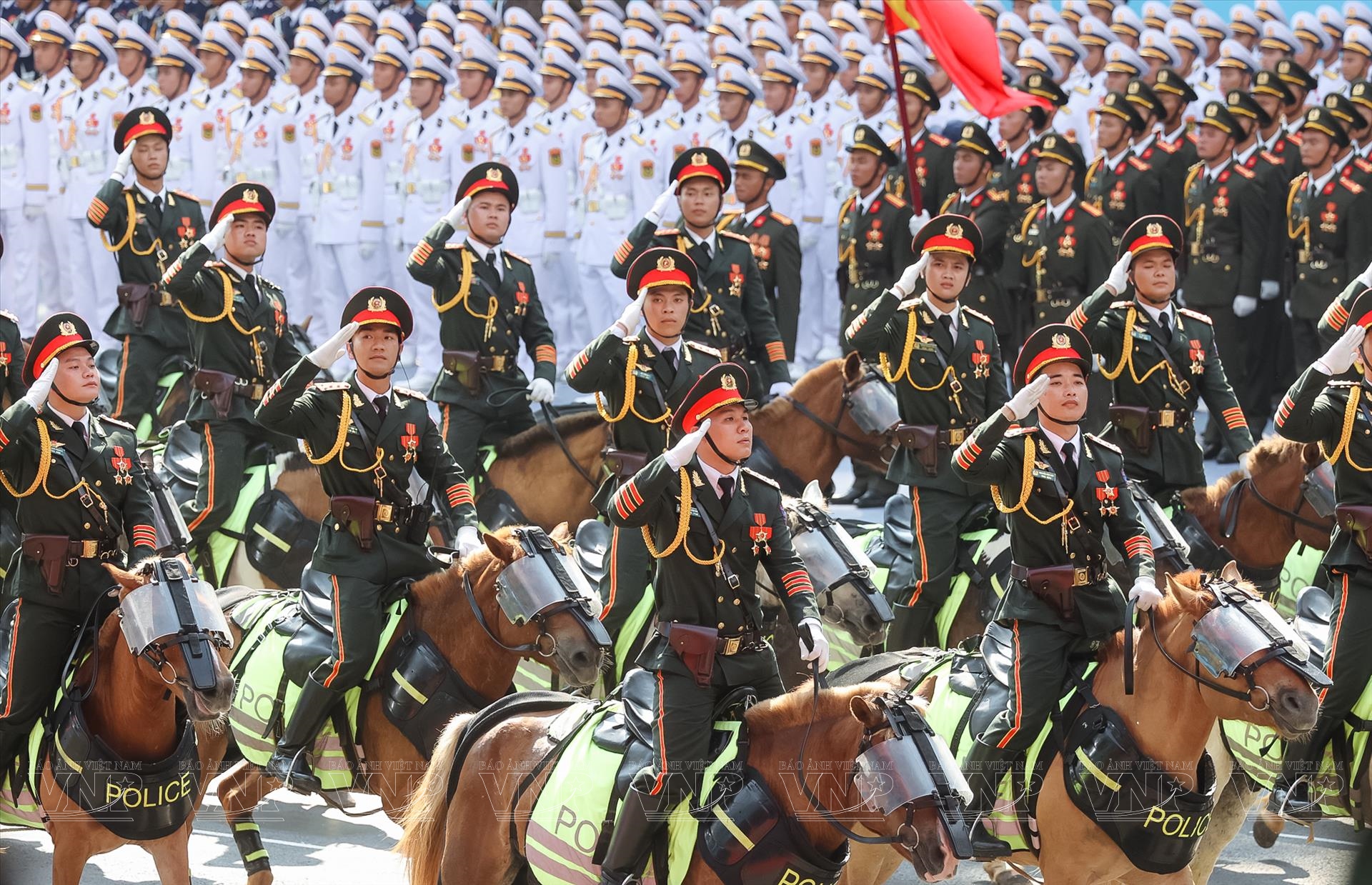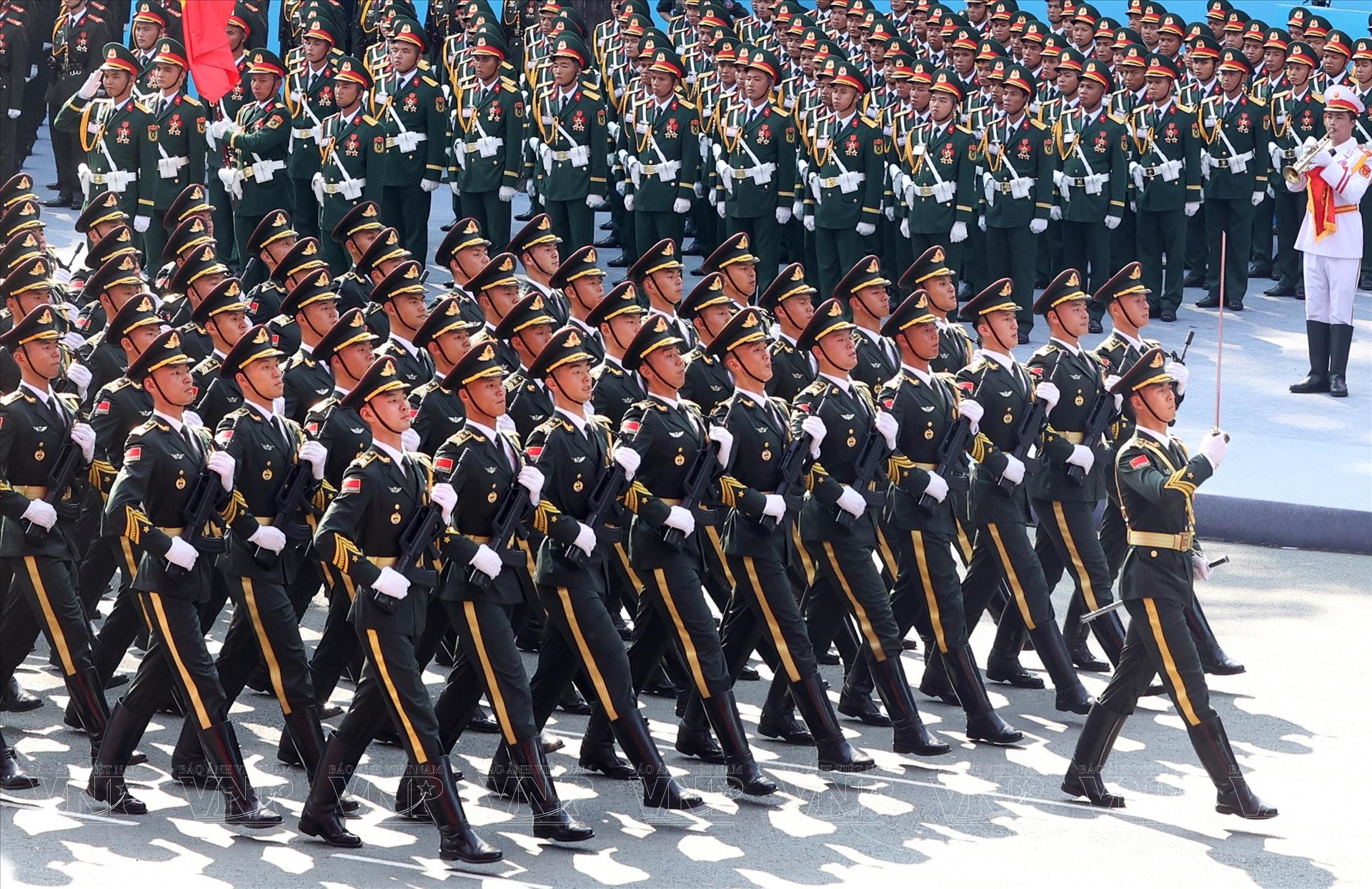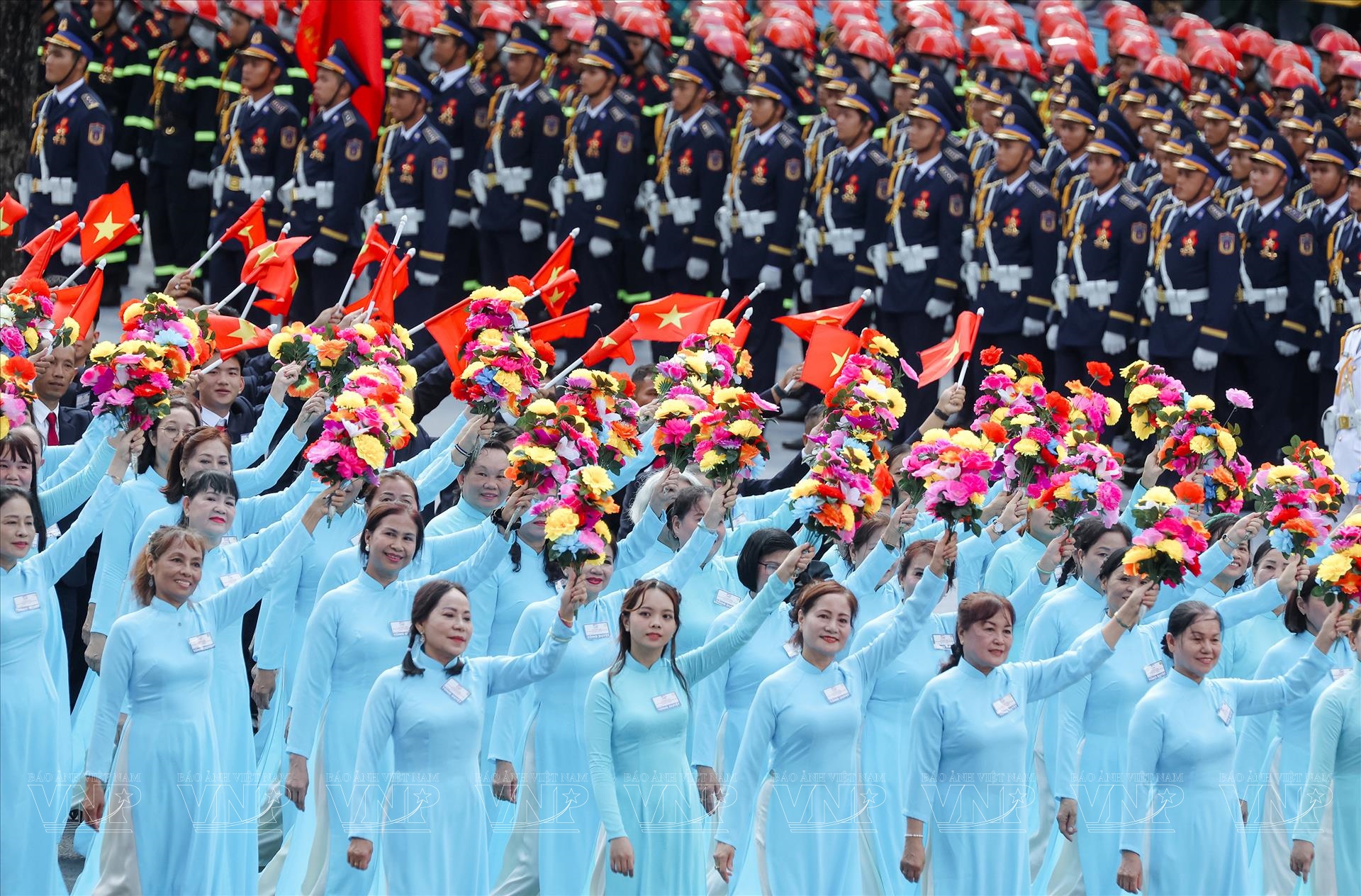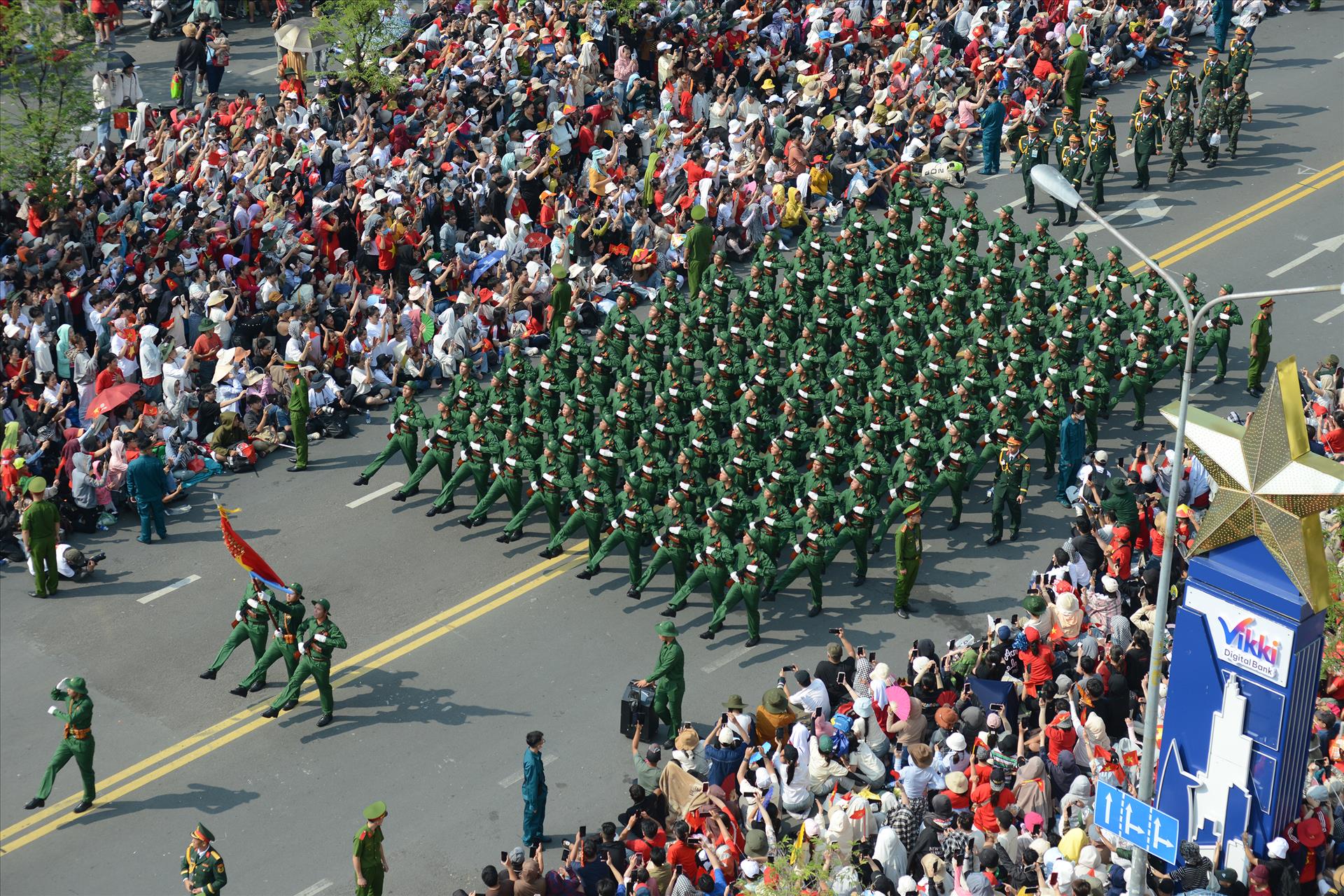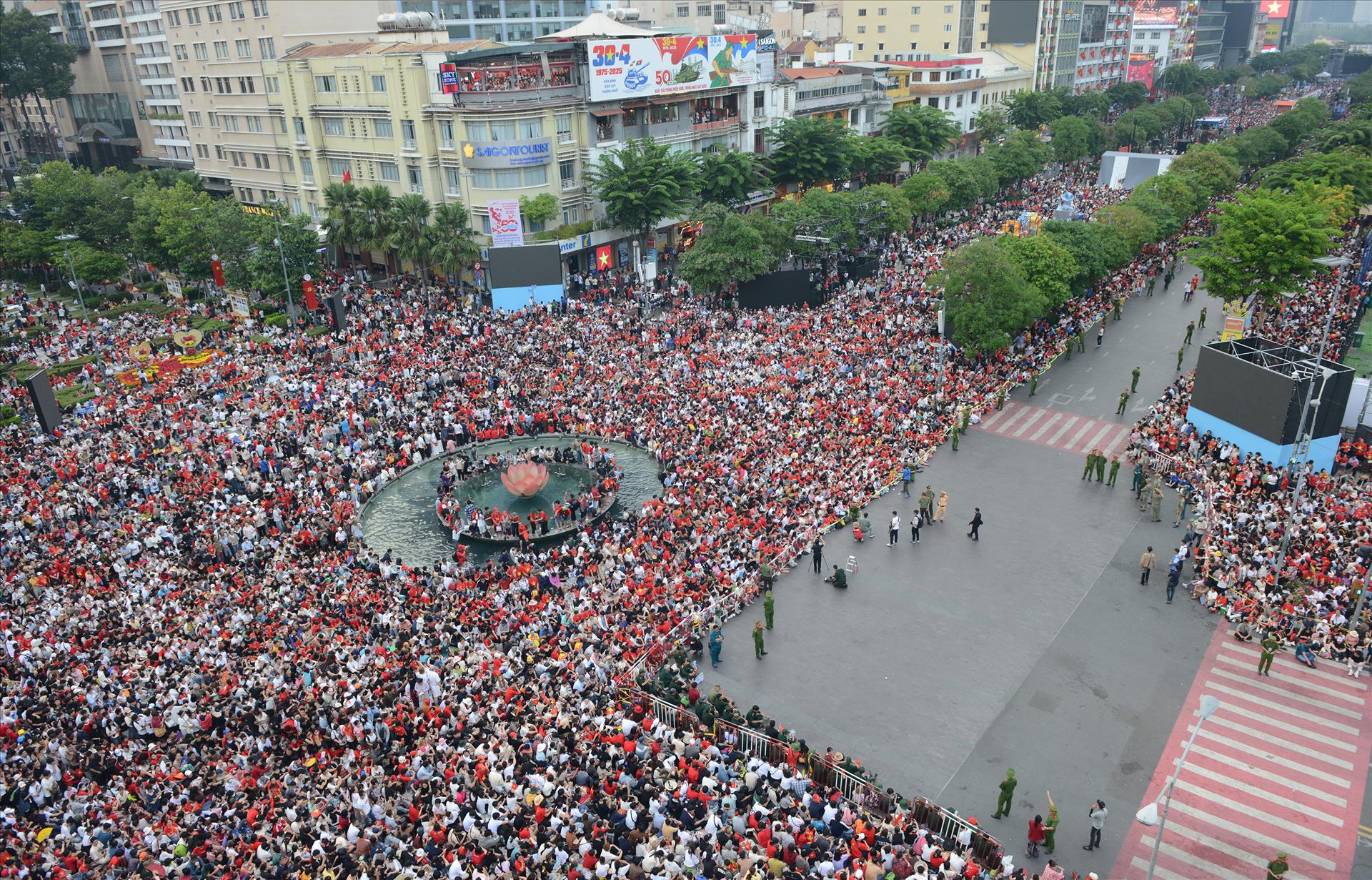Vietnam's 50th Anniversary of Reunification: Spreading a Message of Peace
The commemoration of the 50th anniversary of the Liberation of the South and National Reunification, held on April 30 in Ho Chi Minh City (April 30, 1975-2025), served as a profound occasion for Vietnam to express its enduring gratitude to fallen heroes and to acknowledge the unwavering support of international friends during the nation's struggle for independence.
Through the voices of international friends who joined the commemoration, the enduring value of peace and Vietnam's journey towards it in the past half-century became powerfully evident.
Reflecting on the significance of the anniversary, John McAuliff, Executive Director of the Fund for Reconciliation and Development (FRD) of the United States, shared his emotional perspective. He noted that while the day marked 50 years since the end of the war, an event Vietnamese people remember as the Liberation of the South and National Reunification, he personally had viewed it for the past three decades as the true beginning of peace, a sentiment that took root when the United States and Vietnam established diplomatic relations in 1995. He conveyed this deep feeling as he witnessed what he considered a pivotal moment in the history of the Vietnamese nation.
“After 50 years of national reunification and nearly 40 years of implementing the Doi moi (renewal) policy, our country has overcome numerous difficulties and challenges to achieve monumental accomplishments of historical significance, creating the foundation, potential, position and international prestige today. From a poor, backward nation devastated by the war and subjected to blockades and embargos, Vietnam has transformed into a developing country with near upper-middle income status, deeply integrated into the world politics, global economy, and human civilization, taking on many international responsibilities and playing an active and positive role in various international organizations and important multilateral forums. The country's independence, sovereignty, unity, and territorial integrity have been firmly maintained while national interests have been secured”.
[Excerpt from the speech of Party General Secretary To Lam at the national-level grand ceremony, military parade and procession commemorating the 50th anniversary of the Liberation of the South and National Reunification (April 30, 1975 – 2025)]
“Vietnam celebrated the 50th anniversary of the end of the war with the United States and the formation of its modern nation with a military parade and a focus on a peaceful future”.
The US’s Associated Press (AP)
McAuliff's presence was part of a delegation of 21 FRD members who traveled to Vietnam to participate in the commemorative events in Ho Chi Minh City. This group included anti-war activists who had opposed the US war in Vietnam and who came to Vietnam with a dual purpose: to deepen their understanding of Vietnam's history, culture, and its anti-American resistance for national salvation. He recounted their itinerary, mentioning visits to the Hue Temple of Literature and tours of the imperial palaces from the feudal era. Their journey also included Quang Tri, where they sought to comprehend the lasting consequences of the bombs, mines, and unexploded ordnance left behind by the Americans.
Furthermore, they visited the Da Nang Museum, a repository of war artifacts and evidence, and traveled to Son My (Quang Ngai), the site of the My Lai massacre. Their exploration extended to Con Dao, where they witnessed the infamous 'tiger cages,' culminating in their meaningful presence in Ho Chi Minh City for the anniversary commemoration.
Reuters news agency quoted Party General Secretary To Lam affirming that the resistance war ending in 1975 was a "victory of justice over tyranny". The Party General Secretary also reiterated a famous saying of late President Ho Chi Minh: "Vietnam is one, the Vietnamese nation is one. Rivers may run dry, mountains may erode, but this truth shall never change".
Witnessing Vietnam's transformation in the half-century since the war's end was a key aspiration for McAuliff and his delegation. He observed a nation clearly on a path of development, evident in its modern infrastructure, economic growth, and vibrant tourist destinations that attract a significant number of visitors, including many Americans. Throughout his remarks, he consistently highlighted the remarkably positive relationship that has evolved between Vietnam and the United States, seeing it as a powerful testament to the spirit of reconciliation, healing, and the enduring value of peace.
"For the first time, more than 300 soldiers from China, Laos and Cambodia took part in the spectacle” – a message showing Vietnam's skillful diplomatic efforts. The news agency called it a testament to Vietnam's 'bamboo diplomacy' – flexible, soft, yet steadfast".
The AFP news agency
For his part, US veteran Chuck Searcy from Veterans for Peace (VFP) expressed that, while participating in the April 30 commemoration events in Ho Chi Minh City, he learned a great deal from the Vietnamese people, especially the message of peace.
Searcy expressed their profound respect for the Vietnamese people and their admiration for Vietnam's extraordinary progress in the 50 years following national reunification. He affirmed that Vietnam had achieved remarkable successes, building a strong international reputation and further elevating its role on the global stage. He noted the shared sentiment among his colleagues on the trip, emphasizing their profound pleasure in engaging with the young Vietnamese people in Ho Chi Minh City during this significant occasion. He recounted how these young individuals had shared their hopes for the future and the deep sense of national pride they held. Searcy concluded that this demonstrated Vietnam's commitment to a positive trajectory, expressing his belief in the nation's continued prosperity and development.
“Celebrations culminated in a grand parade in Ho Chi Minh City with thousands of marching troops and an airshow featuring Russian-made fighter jets and helicopters, as Vietnamese waved red flags and sang patriotic songs”.
The Guardian (UK)
Offering a broader perspective on Vietnam's journey, Pallab Sengupta, President of the World Peace Council, stated at a meeting with Comrade Do Van Chien, member of the Politburo, Secretary of the Party Central Committee, and Chairman of the Central Committee of the Vietnam Fatherland Front, that over the preceding 50 years, Vietnam had risen from the devastation of war to become one of the most rapidly expanding economies in Southeast Asia. He attributed this remarkable progress to the Doi Moi (Renovation) process initiated in 1986, which enabled Vietnam to modernize while safeguarding its fundamental values. Sengupta lauded Vietnam as a contemporary development model, characterized by a robust industrial sector, continuously improving healthcare and education systems, and an increasingly influential voice in global affairs. Crucially, he emphasized Vietnam's unwavering commitment to peace, highlighting its consistent pursuit of diplomacy, regional cooperation, and the preservation of global peace, all while steadfastly upholding the principles for which it had fought: independence, unity, and international solidarity./.
Story: VNP
Photos: VNP, VNA
Translated by Hong Hanh
